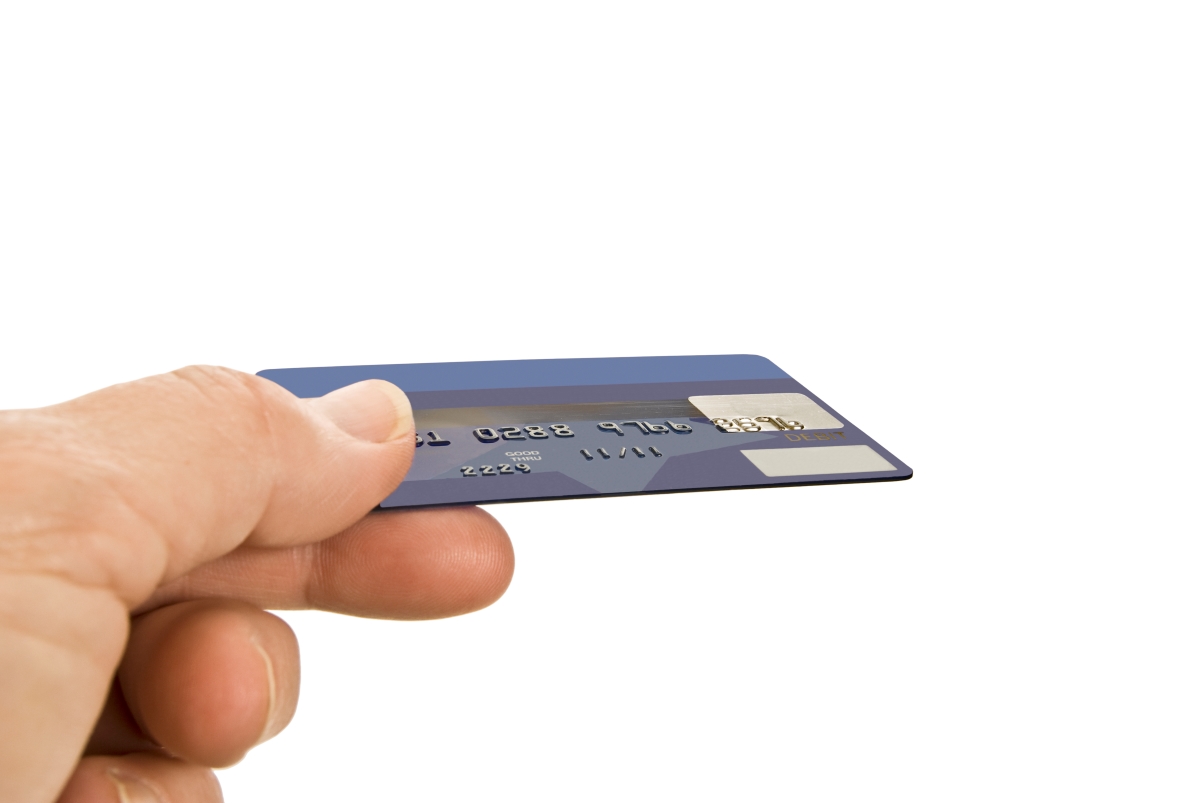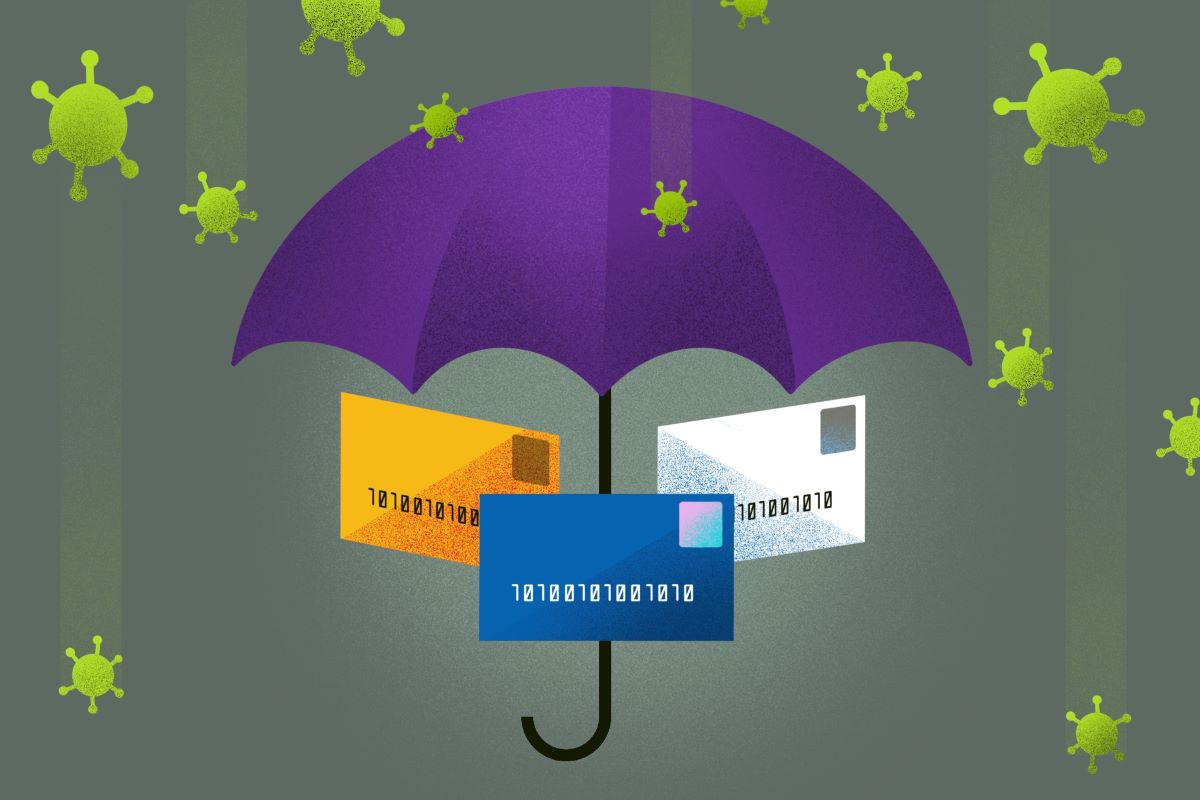

Finance
How To Build Credit During Chapter 13
Published: January 4, 2024
Learn how to build your credit while going through Chapter 13 bankruptcy with these finance tips and strategies.
(Many of the links in this article redirect to a specific reviewed product. Your purchase of these products through affiliate links helps to generate commission for LiveWell, at no extra cost. Learn more)
Table of Contents
Introduction
Filing for Chapter 13 bankruptcy can be a challenging and overwhelming experience. It involves creating a repayment plan to pay off your debts over a specified period of time. While Chapter 13 provides a pathway to financial stability, it can also have a negative impact on your credit score.
However, it is crucial to understand that Chapter 13 bankruptcy is not the end of your financial journey. In fact, it presents an opportunity to rebuild your credit and improve your financial standing. Building credit during Chapter 13 can lead to future financial success and the ability to regain control of your financial life.
In this article, we will explore the importance of building credit during Chapter 13 bankruptcy and provide practical steps you can take to start rebuilding your credit score.
By following these steps, you can lay a solid foundation for your financial future and increase your chances of being approved for credit cards, loans, and other financial opportunities once your Chapter 13 bankruptcy is discharged.
Understanding Chapter 13 Bankruptcy
Chapter 13 bankruptcy, also known as a wage earner’s plan, is a type of bankruptcy that allows individuals with a regular income to create a repayment plan to pay off their debts over a period of three to five years. Unlike Chapter 7 bankruptcy, which involves the liquidation of assets to repay creditors, Chapter 13 allows individuals to keep their property and assets while fulfilling their debt obligations.
When you file for Chapter 13 bankruptcy, you will work with a bankruptcy trustee to develop a repayment plan based on your income and expenses. The plan typically involves repaying a portion of your debt over the designated period, and it must be approved by the bankruptcy court.
During the repayment period, you will make regular monthly payments to the bankruptcy trustee, who will then distribute the funds to your creditors according to the agreed-upon plan. At the end of the repayment period, assuming all payments have been made as planned, any remaining eligible debts may be discharged.
It is important to note that Chapter 13 bankruptcy can have a significant impact on your credit score. The bankruptcy filing will remain on your credit report for up to seven years, and your ability to obtain credit may be limited during the repayment period. However, with proper planning and responsible financial management, you can begin rebuilding your credit even while in Chapter 13.
The Importance of Building Credit During Chapter 13
Building credit during Chapter 13 bankruptcy is crucial for several reasons. First and foremost, it shows your commitment to financial responsibility and your determination to improve your creditworthiness. This can have a positive impact on lenders and creditors who may consider extending credit to you in the future.
Additionally, building credit during Chapter 13 allows you to start repairing the damage done to your credit score by the bankruptcy filing. While Chapter 13 bankruptcy will remain on your credit report for several years, actively working to rebuild your credit can help offset the negative impact.
Furthermore, building credit during Chapter 13 can provide you with greater financial flexibility once your bankruptcy is discharged. It can open doors to new credit opportunities, such as obtaining a mortgage, a car loan, or even qualifying for credit cards with better terms and rewards.
Building credit during Chapter 13 also helps you to learn and practice responsible financial habits. By making timely payments and managing your finances wisely, you can establish a solid foundation for your post-bankruptcy financial future.
It is important to remember that building credit during Chapter 13 takes time, patience, and consistency. It is not an overnight process, but the effort you put into rebuilding your credit during this time can yield long-term financial benefits.
Steps to Build Credit During Chapter 13
Building credit during Chapter 13 bankruptcy is achievable with a strategic approach. Here are some steps you can take to start rebuilding your credit:
- Review Your Credit Report: Begin by obtaining a copy of your credit report from all three major credit bureaus – Experian, TransUnion, and Equifax. Review the report for any errors or inaccuracies, and if you find any, make sure to dispute them and have them corrected.
- Make Timely Payments on Existing Debts: Paying your bills on time consistently is one of the most critical factors in building a positive credit history. Ensure that you make all required payments on your current debts, such as your mortgage or car loan, during the Chapter 13 repayment period.
- Consider Secured Credit Cards: Secured credit cards are a valuable tool for rebuilding credit. These cards require a security deposit, which serves as collateral for your credit limit. Use the card responsibly, keeping your balances low and making timely payments, to gradually establish a positive payment history.
- Utilize Credit-Building Loans: Credit-builder loans are specifically designed to help individuals rebuild credit. These loans typically have a low credit limit and are secured by your own funds. Make regular payments to the loan, and over time, you will build a positive payment history and improve your creditworthiness.
- Seek Professional Guidance: Consider working with a credit counseling agency or a reputable financial advisor who can provide expert guidance on rebuilding credit during Chapter 13. They can offer personalized strategies and advice tailored to your specific financial situation.
Remember, patience and consistency are key when building credit during Chapter 13. It may take some time to see significant improvements, but with diligent effort and responsible financial management, you can gradually rebuild your creditworthiness and pave the way for a stronger financial future.
Review Your Credit Report
When building credit during Chapter 13 bankruptcy, it is crucial to start by reviewing your credit report. This step is important to ensure that the information on your report is accurate and up to date. By reviewing your credit report, you can identify any errors or discrepancies that may negatively impact your credit score.
To obtain a copy of your credit report, you can request it from all three major credit bureaus – Experian, TransUnion, and Equifax. Under federal law, you are entitled to a free copy of your credit report from each bureau once a year. You can also access your credit report through various online services.
When reviewing your credit report, pay close attention to the following information:
- Personal Information: Verify that your name, address, and other personal details are accurate. Ensure that there are no misspellings or outdated information.
- Credit Accounts: Take note of all your credit accounts, including credit cards, loans, and mortgages. Check if the reported balances and payment history are correct.
- Public Records: Look for any public records such as bankruptcies, tax liens, or judgments that may be listed on your credit report. These records should be accurate and reflect the details of your Chapter 13 bankruptcy filing.
- Dispute Errors: If you come across any errors or inaccuracies on your credit report, such as accounts that do not belong to you or incorrect payment history, it is important to dispute them with the credit bureaus. Contact the credit bureau in writing, providing supporting documentation to prove the error, and request that it be corrected.
By reviewing your credit report regularly and addressing any errors or discrepancies, you can ensure that your creditworthiness is accurately represented. This allows you to build credit during Chapter 13 on a reliable foundation.
Make Timely Payments on Existing Debts
One of the most crucial steps in building credit during Chapter 13 bankruptcy is making timely payments on your existing debts. This demonstrates your commitment to responsible financial management and establishes a positive payment history, which is a significant factor in determining your creditworthiness.
During the Chapter 13 repayment period, you will likely have a structured repayment plan in place, overseen by a bankruptcy trustee. It is crucial to adhere to this plan and make your monthly payments on time. Timely payments show potential lenders and creditors that you are meeting your financial obligations despite the challenges of bankruptcy.
To ensure that you make timely payments on your existing debts, consider the following strategies:
- Create a Budget: Develop a realistic budget that takes into account your income, expenses, and the monthly payments required by your Chapter 13 plan. By budgeting effectively, you can ensure that you have the necessary funds available to make your debt payments on time.
- Set up Automatic Payments: Consider setting up automatic payments for your existing debts. This ensures that your payments are made on time each month without the risk of forgetting or missing a payment.
- Prioritize Payments: If you have multiple debts, prioritize them based on interest rates and any special terms outlined in your Chapter 13 plan. Allocate more funds towards high-interest debts or those with specific repayment requirements to minimize the overall cost and ensure compliance with the plan.
- Communicate with Creditors: If you encounter any difficulties or financial hardships that may affect your ability to make timely payments, it is important to communicate with your creditors. They may be willing to work with you to modify your repayment terms or arrange a temporary suspension of payments.
Consistently making timely payments on your existing debts during Chapter 13 bankruptcy helps rebuild your creditworthiness over time. It demonstrates your financial responsibility and dedication to fulfilling your financial obligations despite the challenges of bankruptcy.
Consider Secured Credit Cards
Secured credit cards can be a useful tool for building credit during Chapter 13 bankruptcy. These types of credit cards require a cash deposit as collateral, which serves as your credit limit. By using a secured credit card responsibly, you can demonstrate your ability to manage credit and improve your creditworthiness.
Here’s how secured credit cards work:
- Choose a Reputable Lender: Research and select a reputable lender that offers secured credit cards. Look for lenders that report to all three major credit bureaus, as this ensures that your payment history and credit utilization will be reflected on your credit report.
- Submit a Security Deposit: When applying for the secured credit card, you will be required to submit a security deposit. This deposit becomes the credit limit on your card. Typically, the amount of the deposit ranges from a few hundred to a few thousand dollars.
- Use the Card Responsibly: Once you receive your secured credit card, make small purchases and ensure that you can repay the charges in full and on time. Aim to keep your credit utilization low, ideally below 30% of your credit limit, as this shows responsible credit management.
- Make Timely Payments: It is crucial to make your credit card payments on time each month. Consistent, timely payments demonstrate your commitment to responsible credit usage and help build a positive payment history.
- Monitor Your Progress: Regularly check your credit report to see how your secured credit card activity is being reported. Be patient, as it may take some time to see significant improvements in your credit score. However, with consistent and responsible use of your secured credit card, you can gradually improve your creditworthiness.
Remember that while secured credit cards can help you build credit during Chapter 13, it’s important to use them responsibly and avoid accumulating excessive debt. Paying your bill on time and keeping your credit utilization low are key factors in building a positive credit history.
As you demonstrate responsible credit management with a secured credit card, you increase your chances of qualifying for traditional unsecured credit cards in the future, providing you with more opportunities to continue building your credit after your Chapter 13 bankruptcy is discharged.
Utilize Credit-Building Loans
Another effective strategy for building credit during Chapter 13 bankruptcy is to utilize credit-building loans. These loans are designed specifically to help individuals rebuild their creditworthiness and establish a positive payment history.
Here’s how credit-building loans work:
- Research Lenders: Start by researching lenders who offer credit-building loans. Look for reputable institutions that report loan activity to the credit bureaus, ensuring that your timely payments will be reflected on your credit report.
- Consider a Secured Loan: Secured credit-building loans may be a good option, particularly if you have difficulty obtaining an unsecured loan due to your bankruptcy status. With a secured loan, you provide collateral, such as a savings account or certificate of deposit, which the lender can use as security in case of default.
- Borrow a Reasonable Amount: When applying for a credit-building loan, borrow a reasonable amount that you can comfortably repay. Do not overextend yourself financially, as timely repayment is crucial for building credit.
- Make Timely Payments: Once approved for a credit-building loan, ensure that you make timely payments each month. Making consistent payments demonstrates your ability to handle debt responsibly and builds a positive payment history.
- Monitor Your Progress: Regularly monitor your credit report to see how your credit-building loan activity is reported. Over time, as you make on-time payments and successfully repay the loan, you will see improvements in your creditworthiness.
It’s important to note that credit-building loans may come with higher interest rates or fees due to their focus on helping individuals rebuild credit. Carefully review the terms and conditions before committing to a loan, and ensure that the lender’s reporting practices align with your credit-building goals.
By utilizing credit-building loans responsibly during Chapter 13 bankruptcy, you can establish a positive credit history and improve your credit score. This can open doors to better financing options and opportunities for building credit even further once your Chapter 13 bankruptcy is discharged.
Seek Professional Guidance
Seeking professional guidance is an important step in building credit during Chapter 13 bankruptcy. Financial experts, such as credit counselors or reputable financial advisors, can provide valuable insights and tailored strategies to help you navigate the complexities of rebuilding credit while in bankruptcy.
Here’s how professional guidance can benefit you:
- Credit Counseling: Credit counseling agencies can help you develop a personalized plan for rebuilding credit. They can review your financial situation, offer guidance on budgeting and debt management, and provide strategies specific to your Chapter 13 bankruptcy. They may also have relationships with lenders who specialize in working with individuals in bankruptcy.
- Credit Education: Professional guidance can provide you with education on financial topics such as credit scores, credit utilization, and credit management. Understanding these concepts empowers you to make informed decisions and take actions that will have a positive impact on your creditworthiness.
- Debt Repayment Strategies: Professionals can assist you in developing effective strategies for managing your existing debts during the Chapter 13 repayment period. They can help you prioritize payments, negotiate with creditors, and explore debt repayment options that align with your financial goals.
- Building a Financial Plan: Seeking professional guidance allows you to work with an expert to create a tailored financial plan. This plan can involve steps such as budgeting, saving, and setting achievable goals for rebuilding credit after the Chapter 13 process is complete.
- Staying on Track: Regular check-ins with a credit counselor or financial advisor can help you stay accountable to your financial goals. They can provide guidance and support as you work towards rebuilding your credit and achieving long-term financial stability.
It is important to choose reputable professionals who have experience in working with individuals in bankruptcy. Research and seek recommendations to ensure that you work with someone who has the knowledge and expertise to provide the guidance you need.
Remember, professional guidance complements your own efforts to build credit during Chapter 13 bankruptcy. It can provide you with valuable insights and a structured approach to rebuilding your credit and achieving financial success.
Conclusion
Building credit during Chapter 13 bankruptcy is not only possible but essential for improving your financial standing and securing a brighter future. Though the bankruptcy filing may have initially impacted your credit score, taking proactive steps to rebuild credit can make a significant difference.
Throughout this article, we have explored various steps to help you on your journey of rebuilding credit during Chapter 13. By reviewing your credit report, making timely payments on existing debts, considering secured credit cards, utilizing credit-building loans, and seeking professional guidance, you can lay a solid foundation for a better financial future.
It is important to approach the process with patience, consistency, and responsible financial management. Rebuilding credit is not an overnight process, but by demonstrating your commitment to financial responsibility, you can gradually improve your creditworthiness and regain control of your financial life.
Remember to stay aware of your financial habits, monitor your credit report regularly, and adjust your strategies as needed. Building credit during Chapter 13 requires time and effort, but the rewards are worth it: increased access to credit, better loan terms, and the ability to achieve your financial goals.
As you move forward, continue to educate yourself on financial literacy and make informed decisions about your credit. By taking control of your financial situation and working towards rebuilding your credit, you are paving the way towards a more prosperous and secure financial future.














